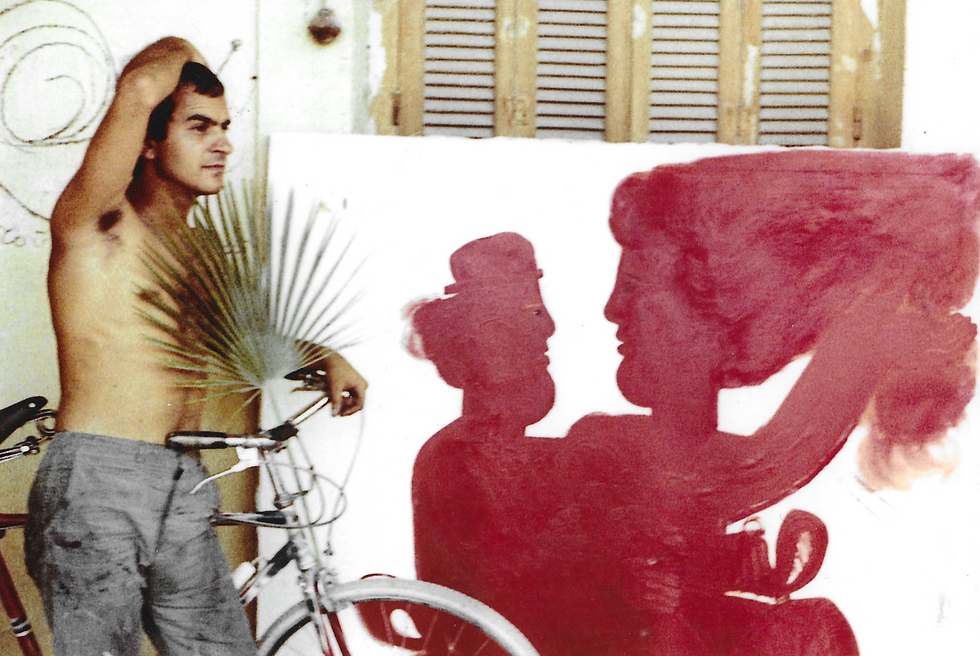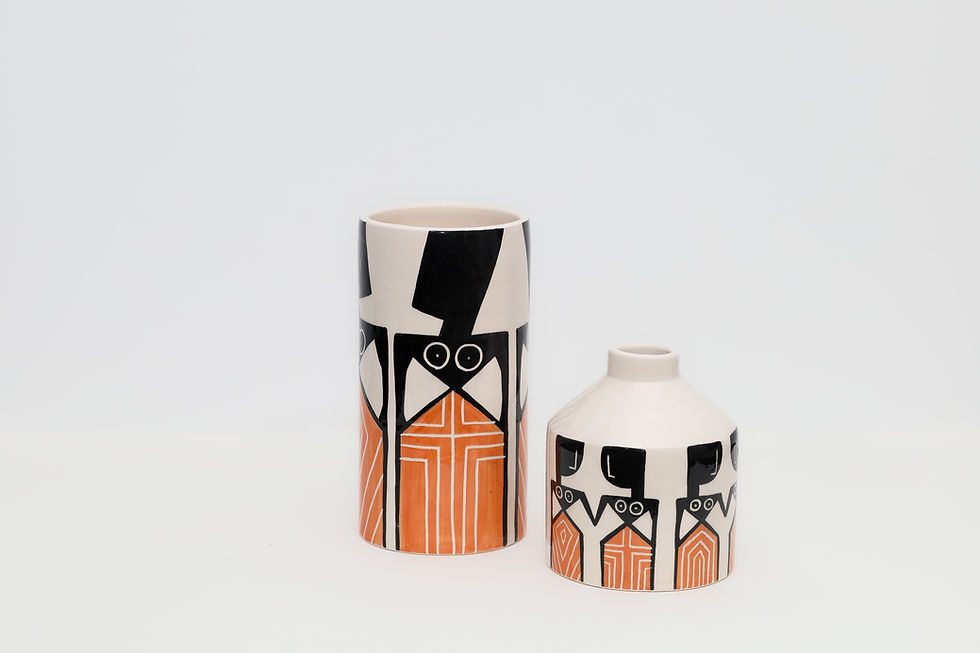Fragments of Shadows & Light: The Art of Yannis Fotiadis
- Portes Magazine

- Dec 21, 2021
- 3 min read
Updated: Aug 16, 2023
“THE LIGHT IN GREECE IS SO STRONG, THAT EVEN IN THE DEEPEST SHADOW OF A BUILDING FACADE, YOU WILL NEVER SEE COMPLETE DARKNESS. IN GREECE, EVEN THE SHADOWS ARE LUMINOUS.”

In one of his earliest memories, Yannis Fotiadis recalls stepping out of the front door of his grandmother’s house near Omonia Square in Athens, catching a glimpse of the mighty Parthenon... perched up on the Acropolis, peaking between the buildings of a modern Athenian streetscape. “Like Saul on the way to Tarsus, I was knocked off of my tiny horse and saw the form of beauty and truth revealed for one brief fleeting moment,” he says.
An architect and artist, Fotiadis was no more than six years old when he began to observe how the sunlight created highlights and shadows against ancient buildings in what he describes as a transcendent moment. To this day, he is captivated by the idea that when seeing a detail or fragment of beauty, one can visualize and discern the whole, as described in the phenomenon of the “part and whole” in Aristotle’s Poetics.
Drawing, to this artist, is all about light, and in particular, the divine light of Greece. “The clarity and brilliance, how it seems to illuminate every object it hits with a glow, which results in an almost otherworldly luminosity, has become seared into my mind,” Fotiadis says.

The shadows, he explains, seem to be imbued with a sense of mystery, given they are created by a sharp relief from the blinding Greek light. “The light in Greece is so strong, that even in the deepest shadow of a building facade, you will never see complete darkness... in Greece, even the shadows are luminous.”
Shadows, and the way they evolve during the course of the day elicit an emotional response Fotiadis translates into art. One of his latest drawings is that of an anthemion he came across on a walk through the Roman Agora in Athens.
“I remember standing there looking at it and the way the shadow of an ivy plant - something living and vibrant - gently traversed and changed shape as it passed over the carved surface of this ancient stone - something timeless, but also lifeless. To me, this seemed poetic,” he recalls. “These elements created a singular emotional moment together... the old and the young, the dead and the living, the timeless and the ephemeral.”
Ancient Greek architecture represents a sort of timelessness. “And yet, it also speaks of the passing of time, decay and change,” Fotiadis says. “Our enlightened ancestors remind me that the greatest virtue is in fact the pursuit of beauty and truth, ideas which give our lives meaning, and that is what I try to convey in my art.”

Philosophy is something the architect-artist enjoys exploring, particularly the works of Plato and Aristotle, but also pre-Socratics such as Heraclitus and Parmenides, for which Fotiadis has written a song. “We are all trying to navigate through a labyrinthian modern world that seems to become infinitely more complex every day,” he says.
Possessing an innate talent, Fotiadis was able to draw three dimensional objects and spaces with pencil and paper early on. “Concepts such as light, shadow, and perspective drawing came very naturally to me at a young age,” he says. Drawing with graphite on paper is second nature to the artist. “I almost don’t need to think about how I am drawing when I draw in this medium. The pencil feels like an extension of my hand. I don’t give the process any thought because I’m so comfortable with it.”

Nowadays, Fotiadis challenges himself with colored pencils, and black and white charcoal on gray-toned paper. “I think both of these mediums will eventually lead me back into painting,” he says, something he has not delved much in since the early 1990s.
A modern day Renaissance man whose creative endeavors span architecture, music, and the visual arts, the Columbia University graduate has designed architectural projects in the U.S., Greece, Dubai, Turkey, and Russia, among other locations.
For Fotiadis, creating art is a primary way to come to terms with very dense, difficult, and metaphysical ideas. “Creating art reminds me that despite the ugliness and falsity that we are often surrounded by and mired in, there is beauty and truth in the world, oftentimes right in front of us. All one need do is open their eyes and look for it.”
_____________________________ COLLECTION: Yannis Fotiadis







